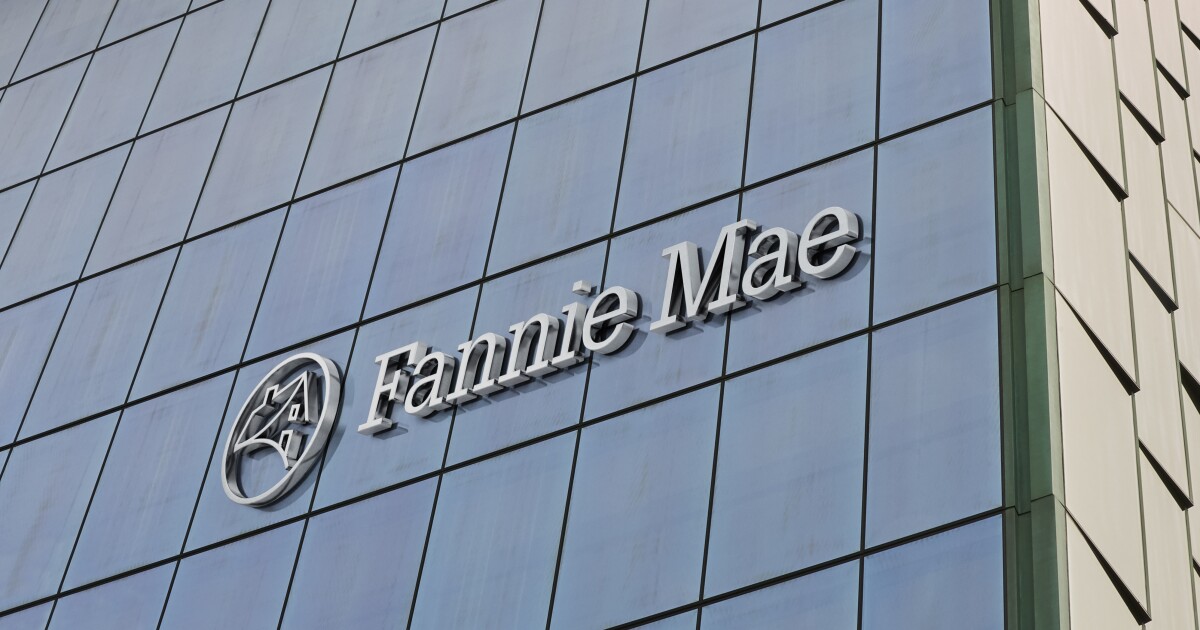
Fannie Mae's earnings were down slightly this summer compared to the previous quarter, primarily due to rising home prices and a smaller provision for credit losses.
The government-sponsored enterprise reported $4.7 billion in net income over the third quarter. That's a $295 million decline from the prior period, but nearly double the $2.4 billion Fannie Mae reported at the same time last year.
Fannie Mae had a $652 million benefit for credit losses in the recent quarter, down from $1.3 billion between April and June. The change was driven by increases in actual and forecasted single-family home prices, executives said in an earnings conference call.
"This was partially offset by write-offs from loan redesignations due to our intention to sell a portion of the non-performing and reperforming loans in our retained mortgage portfolio," said Chryssa Halley, executive vice president and chief financial officer at the GSE.
Climbing interest rates mitigated the impact from the new benefit for credit losses, providing $795 million in fair value gains ending September. Mortgage rates over the third quarter, according to Fannie Mae, began the period at 6.71% and ended Sept. 30 at 7.31%.
Fannie Mae's single-family acquisitions were flat quarter-over-quarter at $89 billion. The split between purchase and refinance activity was also relatively unchanged, at $78 billion and $11 billion, respectively.
To close last year's third quarter, the GSE reported $118 billion in single-family acquisitions, $92 billion of those in the purchase side. Tuesday's results were well ahead of its performance at the beginning of the year, when Fannie Mae reported its worst quarter for single-family acquisitions in over 20 years.
The single-family serious delinquency rate was 0.54% ending September, compared to the 0.55% rate ending June. For multifamily properties, however, missed payments were up from 0.37% to 0.54% in the third quarter, echoing a delinquency trend reversal that's beginning to emerge. The multifamily delinquency swing was largely in senior housing, as those with adjustable-rate mortgages have been prone to stress, Halley said.
Also impacting Fannie Mae's bottom line was a $491 million litigation expense from Fannie Mae and Freddie Mac's loss in a trial over their decade old stock repurchase agreement amendment. The jury in that case awarded $299.4 million to shareholders of Fannie Mae junior preferred stock, among over $600 million in damages.
The GSE's net worth continued to climb to $73.7 billion as of Sept. 30, an amount that has grown steadily since it's been able to retain all of its earnings.
Mortgage players are bracing for a brutal winter, and Fannie Mae Tuesday said consumer sentiment is the lowest it's ever been according to one of its indexes. Executives however continued to ease on greater economic recession fears.
"The strong economic growth Priscilla [Almodovar] mentioned has reduced the likelihood of the mild recession we have expected next year," said Halley, referring to the GSE CEO's introductory comments. "But we believe the full weight of the dramatic increase in interest rates has yet to be felt."



